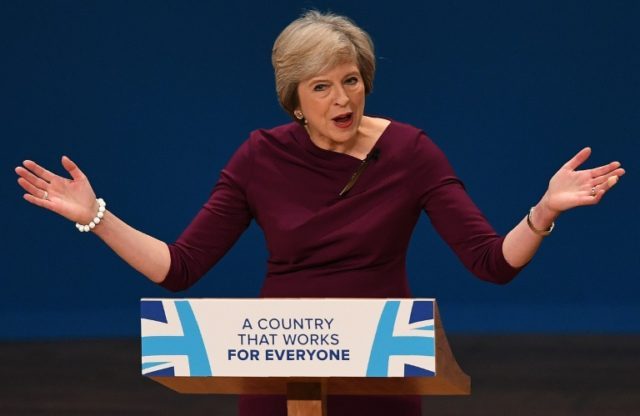London (AFP) – British Prime Minister Theresa May signalled ahead of a House of Commons debate Wednesday that she would let parliament scrutinise her plan for Brexit before she begins the formal process to exit the EU.
The move caused the pound to bounce back after a torrid week, amid speculation that MPs may be able to soften the government’s approach to Brexit, which currently seems on course to take Britain out of the single market.
The pound was worth $1.2250 at 0900 GMT after falling to a 31-year low of $1.1840 last week.
May has still offered no reassurance that MPs will have a vote on her plan before she triggers Article 50 of the EU’s Lisbon Treaty, which formally begins the exit process.
The opposition Labour party hailed her move as a climbdown, although her office said she had always stated that parliament should have a role.
May acted amid concerns that she would lose a House of Commons debate Wednesday, initiated by Labour, calling for MPs to be allowed “properly to scrutinise” the government’s strategy.
She tabled an amendment that effectively accepts the motion.
However, it specifies that any parliamentary scrutiny process must respect the vote to leave the EU and should not “undermine the negotiating position of the government”.
Labour’s shadow minister for Brexit, Keir Starmer, described the prime minister’s move as a “real victory for parliament”.
The party has also given the government 170 questions on the detail of the Brexit plan — one for every day until the end of March, the deadline May has set for triggering Article 50.
“If you are able to provide satisfactory answers to all these questions, just one per day from tomorrow until 31 March next year, it might give some confidence that the government is entering the Article 50 negotiations with a clear plan,” they wrote.

COMMENTS
Please let us know if you're having issues with commenting.